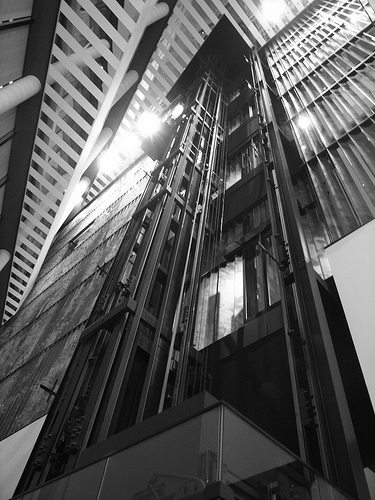

Are you looking for some ideas on how to answer common questions about faith? Or searching for some helpful shorthand to distill your years-long study of apologetics into a brief conversation? In this series, Rick Mattson shares some ideas from his extensive work in apologetics. The series explores the idea of having an apologetics “elevator speech” for several common questions—a short, persuasive message designed to spark interest in Christianity and/or further dialogue. Click here for the rest of the series.
In the present series on “Elevator Apologetics” we’re considering how to offer brief replies to questions and objections regarding Christianity.
Actually, it’s not easy. When time is short it’s a lot easier to criticize than to defend. Criticism can be cast in soundbites:
“I don’t believe in God because I don’t believe in Santa Claus.”
“Religion causes all the wars.”
“The church is oppressive.”
Thoughtful replies to these accusations, however, cannot be reduced to pithy phrases. The Santa Claus critique, for example, demands that we provide a full case for the existence of God, where brevity is difficult if not impossible.
But even if we can’t squeeze a response into a snappy sentence or two, it’s still possible to make a succinct point that invites critics into deeper reflection on the possibility of faith.
So let’s take on that last saying above. Is the church oppressive? How would we respond to this accusation – quickly?
Theological background: It’s no good denying that the church as an institution has been an oppressor at times: think Inquisitions, the Crusades, colonialism, witch hunts, resistance to science, financial and sex scandals.
That’s a lot. Let’s just admit these sins and show genuine remorse.
And yet, it wasn’t always true Christians who were the perpetrators. Corrupt leaders turned the church’s institutional power to acts of oppression and harm. We should blame sinful human beings for misusing Christianity rather than Christianity itself.
The reply we actually make: Yes, I acknowledge the sins of the church, which are inexcusable and regrettable. I’m sorry when true brothers and sisters in Christ were the cause of oppression.
And yet, the church as an institution has often been turned to harm by corrupt leaders who may not have been true Christ followers. As an illustration, if I go out and pound dents in your car with a hammer, you wouldn’t blame the hammer, you’d blame me. A hammer should be put to good use, such as helping a friend build a house.
Similarly, it’s more accurate to blame sinful human beings who misused the power of the church than to blame the church itself.
And did you know that most of the oldest colleges and universities in the country were founded by Christians? That includes Harvard, Yale and Princeton. And Habitat for Humanity, an organization founded on Christian principles, has built over a half-million homes for those in need.
Parting question to the critic: When it comes to other institutions such as government or business or even the family, where do you place the blame when things go wrong?
Suggested resource: Alvin J. Schmidt, How Christianity Changed the World (Zondervan)
Rick Mattson is a national evangelist and apologist for InterVarsity, speaking at over eighty campuses the past few years. He lives in St. Paul, MN with his family. He studied at Bethel Seminary of St. Paul, MN, where he received his masters in the philosophy of religion. As part of his current duties he serves as evangelism coach for graduate students at several universities. Rick’s a committed family man and serious golfer. He is the author of three books: Faith is Like Skydiving, Faith Unexpected and Witness in the Academy.

Leave a Reply